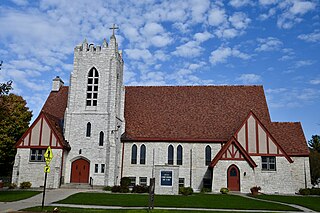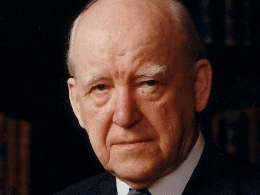To be born again, or to experience the new birth, is a phrase, particularly in evangelicalism, that refers to a "spiritual rebirth", or a regeneration of the human spirit. In contrast to one's physical birth, being "born again" is distinctly and separately caused by the operation of the Holy Spirit, and it occurs when one is baptized in water. It is a core doctrine of the denominations of the Anabaptist, Moravian, Methodist, Baptist, Plymouth Brethren and Pentecostal Churches along with all other evangelical Christian denominations. All of these Churches strongly believe Jesus's words in the Gospels: "You must be born again before you can see, or enter, the Kingdom of Heaven". Their doctrines also mandate that to be both "born again" and "saved", one must have a personal and intimate relationship with Jesus Christ.

Seventh Day Baptists are Baptists who observe the Sabbath as the seventh day of the week, Saturday, as a holy day to God. They believe in conscious baptism of believers by immersion, congregational government and the scriptural basis of opinion and practice. They profess a statement of faith instituted on fundamental precepts of belief. Seventh Day Baptists rest on Saturday as a sign of obedience in a covenant relationship with God and not as a condition of salvation. Many, have adopted a Baptist covenant theology, based on the concept of regenerated society.

The Sermon on the Mount is a collection of sayings spoken by Jesus of Nazareth found in the Gospel of Matthew that emphasizes his moral teachings. It is the first of five discourses in the Gospel and has been one of the most widely quoted sections of the Gospels.
Sola scriptura is a Christian theological doctrine held by most Protestant Christian denominations, in particular the Lutheran and Reformed traditions, that posits the Bible as the sole infallible source of authority for Christian faith and practice. The Catholic Church considers it heterodox and generally the Orthodox churches consider it to be contrary to the phronema of the Church.

The Last Judgment, Final Judgment, Day of Reckoning, Day of Judgment, Judgment Day, Doomsday, Day of Resurrection or The Day of the Lord is a concept found across the Abrahamic religions and the Frashokereti of Zoroastrianism.

In Western Christian theology, grace is created by God who gives it as help to one because God desires one to have it, not necessarily because of anything one has done to earn it. It is understood by Western Christians to be a spontaneous gift from God to people – "generous, free and totally unexpected and undeserved" – that takes the form of divine favor, love, clemency, and a share in the divine life of God. In the Eastern Orthodox Church, grace is the uncreated Energies of God. Among Eastern Christians generally, grace is considered to be the partaking of the Divine Nature described in 2 Peter 1:4 and grace is the working of God himself, not a created substance of any kind that can be treated like a commodity.

The Beatitudes are sayings of Jesus, and in particular eight or nine blessings recounted by Jesus in the Sermon on the Mount in the Gospel of Matthew, and four in the Sermon on the Plain in the Gospel of Luke, followed by four woes which mirror the blessings. Each is a proverb-like proclamation, without narrative.
Antinomianism is any view which rejects laws or legalism and argues against moral, religious or social norms, or is at least considered to do so. The term has both religious and secular meanings.
Though the annual meeting of this group is denominated The General Association of The Baptists, they are most widely known as the Kindred Associations of Baptists. Other names associated with these churches are the Baptist Church of Christ, The Baptists, and Separate Baptists. The primary location of the churches is middle Tennessee and northern Alabama. Members from this association form the largest body of Baptists in Moore County, Tennessee.
The means of grace in Christian theology are those things through which God gives grace. Just what this grace entails is interpreted in various ways: generally speaking, some see it as God blessing humankind so as to sustain and empower the Christian life; others see it as forgiveness, life, and salvation.

David Martyn Lloyd-Jones was a Welsh Congregationalist minister and medical doctor who was influential in the Calvinist wing of the British evangelical movement in the 20th century. For almost 30 years, he was the minister of Westminster Chapel in London.
Within many denominations of Christianity, Christian perfection is the theological concept of the process or the event of achieving spiritual maturity or perfection. The ultimate goal of this process is union with God characterized by pure love of God and other people as well as personal holiness or sanctification. Other terms used for this or similar concepts include entire sanctification, perfect love, the baptism with the Holy Spirit, the indwelling of the Holy Spirit, baptism by fire, the second blessing, and the second work of grace.

As a general term in theological use, assurance refers to a believer's confidence in God, God's response to prayer, and the hope of eternal salvation. In Protestant Christian doctrine, the term "assurance", also known as the Witness of the Spirit, affirms that the inner witness of the Holy Spirit allows the Christian disciple to know that they are justified. Based on the writings of St. Augustine of Hippo, assurance was historically an important doctrine in Lutheranism and Calvinism, and remains a distinguishing doctrine of Methodism and Quakerism, although there are differences among these Christian traditions. Hymns that celebrate the witness of the Holy Spirit, such as Fanny Crosby's "Blessed Assurance", are sung in Christian liturgies to celebrate the belief in assurance.
Imparted righteousness, in Methodist theology, is that gracious gift of God given at the moment of the new birth which enables a Christian disciple to strive for holiness and sanctification. John Wesley believed that imparted righteousness worked in tandem with imputed righteousness. Imputed righteousness is the righteousness of Jesus credited to the Christian, enabling the Christian to be justified; imparted righteousness is what God does in Christ by the power of the Holy Spirit after justification, working in the Christian to enable and empower the process of sanctification.
The conditional preservation of the saints, or conditional perseverance of the saints, or commonly conditional security, is the Arminian Christian belief that believers are kept safe by God in their saving relationship with him upon the condition of a persevering faith in Christ. Arminians find the Scriptures describing both the initial act of faith in Christ, "whereby the relationship is effected", and the persevering faith in him "whereby the relationship is sustained." The relationship of "the believer to Christ is never a static relationship existing as the irrevocable consequence of a past decision, act, or experience." Rather, it is a living union "proceeding upon a living faith in a living Savior." This living union is captured in the simple command by Christ, "Remain in me, and I in you".
Regeneration, while sometimes perceived to be a step in the ordo salutis, is generally understood in Christian theology to be the objective work of God in a believer's life. Spiritually, it means that God brings a person to new life from a previous state of separation from God and subjection to the decay of death. Thus, in Lutheran and Roman Catholic theology, it generally means that which takes place during baptism. In Calvinism and Arminian theology, baptism is recognized as an outward sign of an inward reality which is to follow regeneration as a sign of obedience to the New Testament; as such, the Methodist Churches teach that regeneration occurs during the new birth.

Wesleyan theology, otherwise known as Wesleyan–Arminian theology, or Methodist theology, is a theological tradition in Protestant Christianity based upon the ministry of the 18th-century evangelical reformer brothers John Wesley and Charles Wesley. More broadly it refers to the theological system inferred from the various sermons, theological treatises, letters, journals, diaries, hymns, and other spiritual writings of the Wesleys and their contemporary coadjutors such as John William Fletcher, Methodism's systematic theologian.

Matthew 6 is the sixth chapter of the Gospel of Matthew in the New Testament. This chapter contains the central portion of the Sermon on the Mount, including the Lord's Prayer.

Ephesians 4 is the fourth chapter of the Epistle to the Ephesians in the New Testament of the Christian Bible. Traditionally, it is believed to have been written by Apostle Paul while he was in prison in Rome, but more recently, it has been suggested that it was written between AD 80 and 100 by another writer using Paul's name and style. This chapter is a part of Paul's exhortation, with the particular section about the mutual interdependence of the Christians as the church and how they should live in the world (4:17–5:20).
In Christianity, the title Son of God refers to the status of Jesus as the divine son of God the Father.









